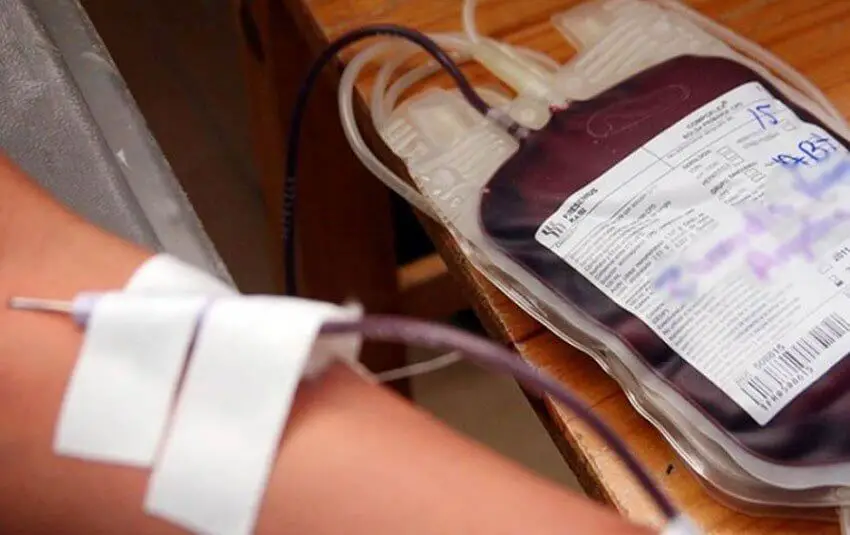Jehovah’s Witnesses stand out from other congregations because of their strict religious standings, such as their beliefs on blood transfusion.
Their views are grounded on biblical teachings, which they do not hesitate to quote to back their various religious stances.
Like other religious groups, Jehovah’s Witnesses have a right to interpret the Bible in their way, but their stand on blood transfusion attracts a lot of criticism.
Most people have a hard time understanding what could be so bad about blood transfusion to the extent that some Jehovah’s Witnesses wouldn’t consider it even if it was the last option to save a believer’s life.
The church’s approach to blood transfusion raises many questions and concerns.
One may, for example, wonder why a parent would watch their child die when they know too well that blood transfusion can save their life.
Well, this post explores different aspects of Jehovah’s Witnesses beliefs on blood transfusion, including:
- The reason behind their unique stance
- The alternatives of blood transfusion
- The fate of faithful who go against the belief.
Read on for insights on what to expect if you are considering joining the JW communiy, have a loved one who wants to join them, or just want enlightenment on why they don’t condone the practice.
Why Jehovah’s Witnesses Refrain From Blood Transfusions

Jehovah’s Witnesses do not accept blood transfusions but opt for bloodless surgeries and other medical alternatives.
So, to what extent is blood transfusion unacceptable to the religious group?
They do not accept whole blood and its primary components like platelets, red cells, white cells, and plasma.
To them, the belief is more of a religious issue where they quote Old and New Testament guidelines on abstaining from blood-related activities.
Jehovah’s Witnesses refer back to several readings from the Bible to support their stand, such as Genesis 9:4, Deuteronomy 12:23, and Acts 15:28, 29.
They maintain that God requests his followers to avoid blood as it represents life, and their decision to avoid transfusion abides by his commands.
Not all Jehovah’s Witnesses are bound by their religion’s stance on blood transfusion, implying the decision to have a blood transfusion is an individual’s decision.
So, are there aspects of blood transfusion acceptable to Jehovah’s Witnesses?
Aspects of Blood Transfusion Acceptable to Jehovah’s Witnesses
Jehovah’s Witnesses do not completely abhor all aspects of blood transfusion but might consider some specifics.
The acceptance of the derivatives of primary blood components is a personal choice as some may hesitate to accept them.
Among the acceptable derivatives of blood transfusion among Jehovah’s Witnesses include:
- Hemoglobin-Based Oxygen Carriers: Artificial blood substitutes produced from pure hemoglobin, meaning they are not directly associated with whole blood.
- Stem Cell Transplants: Jehovah’s Witnesses may be inclined to stem cell transplants that do not involve whole blood transfusions or associated components.
- Fractionated Components: These derivatives of blood components include clotting factors like Beriplax, coagulation factors, albumin, immunoglobulins, and cryoprecipitate.
- Non-Blood Volume Expander: These are fluids or components used to increase blood volume. They include crystalloids and synthetic colloids like gelatins and dextrans.
- Pre-stored Blood: Some Jehovah’s Witnesses accept blood transfusions that involve their blood. Their blood is drawn and stored in advance to be used in medical procedures that may require them to undergo transfusions later in life.
Blood Transfusion Alternatives for Jehovah’s Witnesses
Now that Jehovah’s Witnesses do not accept whole blood transfusions, what alternatives do they have?
Are the congregants, especially cesarean patients, doomed for blood transfusion refusal?
If they have options, are they as effective as blood transfusion?
Medically, it is possible to carry out surgical procedures without the intervention of blood transfusions, but there is still room for complications to arise.
Jehovah’s Witnesses are, therefore, not doomed to refuse to accept a blood transfusion.
Actually, Jehovah’s Witnesses refusal of blood transfusions has contributed to the popularity of bloodless surgeries.
In bloodless surgeries, patients lose small amounts of blood.
One way to achieve successful bloodless surgeries is by ensuring vital body organs like the heart or lungs can utilize oxygen already present in the body.
Doctors also use advanced surgical innovations that enable them to avoid blood vessels.
Other techniques that help surgeons minimize blood include using a cell-saver machine that efficiently collects and reinfuses blood during surgical processes.
What Happens to Jehovah’s Witnesses Who Accept Blood Transfusion?

Given the probability of complications arising from Jehovah’s Witnesses’ blood transfusion refusal, some faithful may fear for their life depending on the complexity of their condition and give in to the medical practice.
What happens if a Jehovah’s Witness throws caution to the wind and chooses whole blood transfusion to save their lives?
In the past, the JW church operated with harsh repercussions of accepting blood transfusion among its members.
Anyone who opposed the belief that blood transfusion is a sin had a higher chance of being disfellowshipped, especially if the guilty party did not show remorse for their actions.
However, the church revised its disciplinary stance on believers who opted to undergo blood transfusion in 2000.
The church clarified that it would cease excommunicating followers who accepted blood transfusion and leave the practice as an individual’s choice.
The church’s decision, however, did not change its perception of blood transfusion because it still terms it as a sin.
What Should Doctors Do If a Jehovah’s Witness Refuses to Undergo Blood Transfusion?
Doctors are professionals in the medical field, and their insights carry a heavy weight on a patient’s well-being.
So, what happens if a doctor encounters a Jehovah’s Witness who, despite the gravity of their condition, refuses blood transfusion even when it seems like the most suitable procedure at the moment?
Do they follow the patient’s stand even if death is a possible scenario, or what should they do in such a fragile situation?
In such cases, doctors obey the patient’s directive because medical practice laws give patients the right to consent or refuse treatment.
To remove the burden of bearing responsibility if complications or death arise due to the patient’s refusal to undergo a blood transfusion, doctors may request written forms stating their wishes and complete knowledge of what could go wrong in a bloodless surgery.
In some cases, Jehovah’s Witnesses know that medical procedures requiring blood transfusion may arise.
Therefore, they always carry a signed card to present to health practitioners in such circumstances.
That way, doctors know that the patient will not agree to blood transfusion and seek treatment alternatives.
In rare occasions, doctors may have their way and administer blood transfusion if the patient is unconscious and unable to refuse or consent to the procedure.
In such cases, the patient’s relatives’ opinion does not matter unless they present the patient’s written and signed card declaring their refusal to undergo a blood transfusion.
Doctors sometimes find themselves in challenging situations, especially where Jehovah’s Witnesses children are the patients, and the only way to save their lives is through blood transfusion, but their parents strongly disregard it.
Such circumstances have forced some health practitioners to seek court permission to carry blood transfusions on children patients because they feel it is unfair for parents to determine their children’s fate even if the kids are not mature to make a choice.
Also Read:
Can A Jehovah’s Witness Be A Doctor?
Do Jehovah’s Witnesses Believe in Vaccinations?
9 Jehovah’s Witness Dietary Restrictions You Probably Didn’t Know
50 Questions Jehovah Witnesses Cannot Answer
How to Navigate Leaving the Jehovah’s Witnesses
Disclaimer: This post is for informational purposes only, offering insights into Jehovah’s Witness beliefs on blood transfusion. Readers are encouraged to approach the content with an open mind, acknowledging diverse interpretations and practices within the faith. It does not impose judgments or dictate beliefs but fosters a respectful exploration of the subject matter. For specific advice, consulting authoritative sources within the Jehovah’s Witness community is recommended. This post does not replace guidance from religious authorities.

